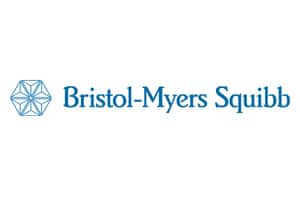 Bristol-Myers Squibb’s new cancer drug Opdivo has shown robust efficacy in a second-line melanoma study, boosting response rates with fewer side effects than standard therapy.
Bristol-Myers Squibb’s new cancer drug Opdivo has shown robust efficacy in a second-line melanoma study, boosting response rates with fewer side effects than standard therapy.
Opdivo (nivolumab) also has the distinction of becoming the first drug in the much-anticipated PD1 inhibitor class to generate phase III data, scoring a point for BMS in the keenly fought competition with arch-rival Merck & Co which recently secured US approval for its Keytruda (pembrolizumab) product.
In the phase III trial, nivolumab – which is approved in Japan but still awaiting a green light in the US and Europe – was compared to chemotherapy selected by the clinician in patients with advanced melanoma whose cancer had progressed despite earlier treatment with BMS’ Yervoy (ipilimumab).
BMS’ drug achieved an objective response rate of 32%, compared to 11% with chemotherapy, with most of the nivolumab patients still responding at the time the analysis was carried out after six months.
In the chemotherapy group the response typically tapered off after 3.6 months according to the data which is due to be presented later today at the European Society of Medical Oncology (ESMO) conference in Madrid.
Treatment with the PD1 inhibitor was also associated with a lower frequency of adverse events compared to chemotherapy, with discontinuations due to drug side effects occurring in 2% of the nivolumab group and 8% of chemotherapy patients.
There was a 31% incidence of higher-grade treatment-related side effects in the chemotherapy group compared to only 9% incidence with nivolumab.
“Previously-treated advanced melanoma patients have limited options,” said the lead investigator in the study, Jeffrey Weber of the Moffitt Cancer Centre in Florida, US, who said he was “nicely surprised” by the strength of the data.
He suggested that the interim results with the PD1-targeting drug – which is also known as a ‘checkpoint inhibitor’ – would translate into even more impressive data when the study concludes.
Weber said: “The impressive data on duration of response suggest that there will be significant prolongation of progression-free and overall survival when the analysis of those data is mature.”
Nivolumab was conditionally approved for marketing in July as a treatment for patients in Japan with melanoma that is not treatable with surgery, becoming the first checkpoint inhibitor to reach the market, although BMS and development partner Ono Pharmaceutical will have to file the results of phase III trials to secure full approval.
While Merck won the race to market in the US and could also pip BMS to the post in Europe, a speedy roll-out of pivotal data could have a big effect on how the two drugs perform in the marketplace.
Regardless of how the commercial battle plays out, the arrival of the new class is a big boost to melanoma patients.
Professor Olivier Michielin, of the University of Lausanne at ESMO, commented: “These results add another piece of evidence that PD blockade is rapidly becoming a central part in our armamentarium against melanoma, progressively replacing chemotherapy with more effective and less toxic options.”
“These results demonstrate that PD blockade, contrary to a common and old dogma of immunotherapy, can produce rapid and deep responses even in advanced and bulky disease,” he added.




